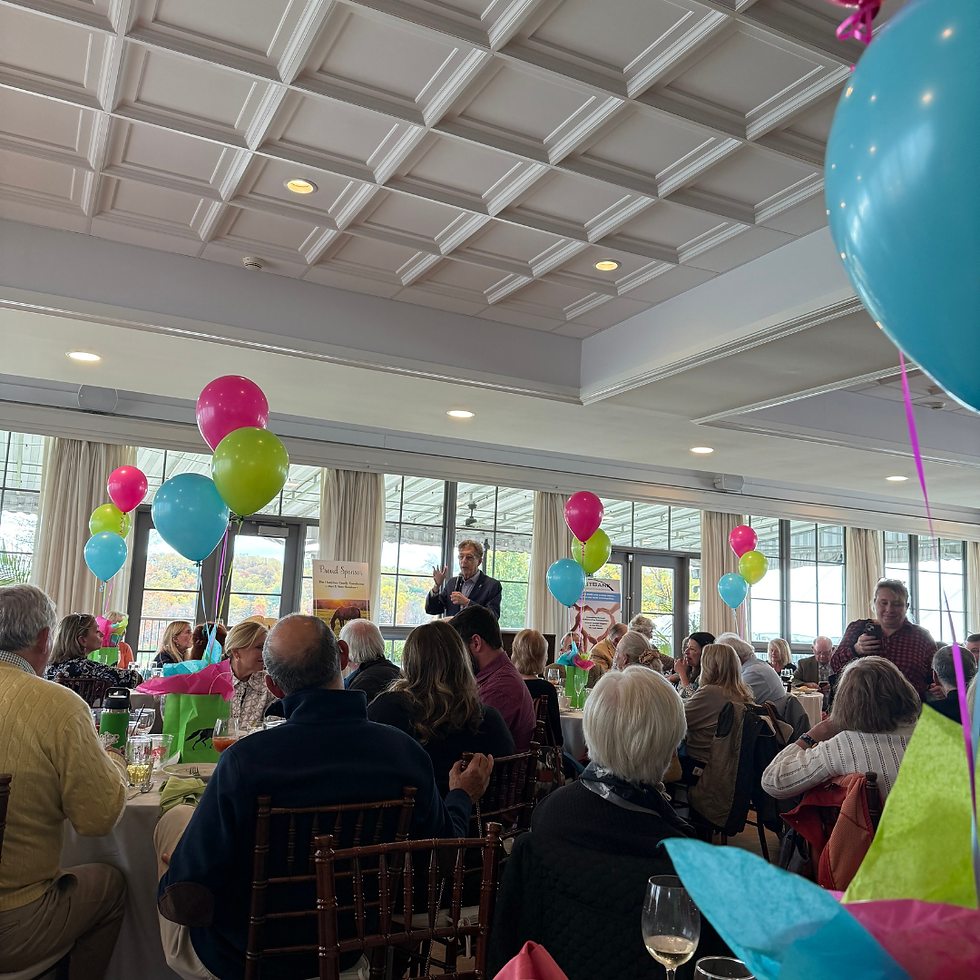TLC for the Senior Horse: 5 Steps
- Ryerss Farm

- Aug 1, 2021
- 4 min read

It is always important to take care of your horse, but it is especially crucial as your horse ages. Your horse’s body starts to break down, its joints and muscles will become weaker over time, and fatigue will start to set in. Below are a few preventative steps to take when taking care of your senior horse.
Movement is Key
As your horse starts to age, inactivity is more frequent. Due to age, your horse has most likely not been involved in competitive races. Other issues such as arthritis have most likely impacted their body. Try to get your horse out into the field for shorter walks, a ride, or just allow your horse to roam. This will increase their serotonin levels due to fresh air and sunshine.
There are a few factors that you should watch for when your horse is exercising. First, your horse may become dehydrated or tire faster than usual. If you start to notice this pattern, make sure you start the process of exercising again slower than normal. Next, you may see that arthritis has set in. If so, make sure to keep the exercise light and short. You want to allow the horse to maintain some form of joint movement.

Shots are Needed
Even at an older age, you need to make sure that your horse is still receiving shots. Your horse is more vulnerable in an older state to catch any infectious disease. The immune system is slowly breaking down over time which means that their body doesn’t absorb vaccines as well, but vaccines are still important to get. The vaccinations can still somewhat offer a protective cover over your horse. As your horse ages, make sure to add antioxidant minerals and several vitamins to try to boost its immune system. The last thing you can do to help your horse is to take the horse to the veterinarian. The veterinarian can check circulating antibodies or titers for particular diseases. This is beneficial if your horse reacts terribly to past vaccines.
Routine Care
Routine care for any horse has always been paramount, but it is really important to do with your older horse. An older horse doesn’t like to be groomed constantly, but make sure to groom a few times a week instead of every single day. Even if you don’t groom every day, it is important to do a body scan daily. Check for any scratches, bumps, bugs, or other areas that don’t quite look right. Along with hygiene, you should schedule hoof trimmings every so often. Since the majority of older horses develop arthritis, longer feet are more detrimental and painful in the long run. In the routine, make sure to check for parasites constantly. With shorter hoofs, your horse will be able to maneuver more comfortably. With an older horse, there is a stronger chance of fecal strongyle-egg counts. Your veterinarian can help strategize a deworming plan that allows your horse to be checked more consistently. The suggested time is to deworm every 60 days and make two yearly appointments to look for tapeworms.
Hydrate your Horse Constantly
Hydration is very important, especially on extremely hot days in the summer. You should refill any water stations constantly to make sure your horse is staying hydrated. In order to make sure that your horse is hydrated, check the inside of your horse’s mouth. A common way to check for dehydration is to conduct the turgor test, although this has proven to be unreliable in older horses. This is why it is crucial to check your horse’s mouth. If it appears to be dry, the horse has decided not to drink or other horses could potentially hog the water.
If you do notice dehydration, get your horse to shade immediately. You could bring the horseback to the stable or even go to a shaded area under the tree. Bring a hose to cool your horse off as well as your horse’s personal water bucket to drink from.

Regulate the Body Temperature
Horses can usually regulate their body temperature easily, but as your horse ages, it becomes more difficult. There are certain tips to try to regulate the body temperature in both the summer and winter. In the summer, make sure to take your horse out during the cooler hours such as sunrise or sunset. Overheating can occur in the afternoon and you want to try to prevent that. In the winter, it is important to purchase a blanket if your horse tends to have a thin coat. If not, don’t worry about the blanket. Make sure to adjust your horse’s diet in the winter; this is a time where your horse could easily lose weight if there are not enough nutrients in the feed. In both seasons, make sure to watch the water bucket. The winter is usually a time where horses drink less water which can lead to impaction colic. In this case, add more warm water and salt to the bucket. This practice usually encourages the horse to drink more water.
Overall, it is very important to take extra care of your senior horse. Above are a few general tips on how to keep your older horse happy, healthy, and safe.
.png)







Comments